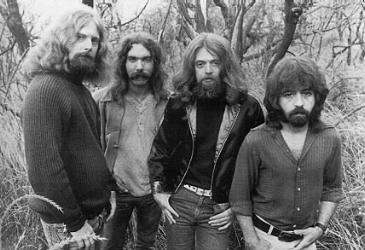

Home Lyrics Musicians Albums History Interviews Links
1970 - 1972
| In 1970/71 the new Byrds line-up with McGuinn, White, Parsons ans Skip Battin (bass) recorded 3 albums. The double album "(Untitled)" became a huge success bringing the group back into the charts but the two last Columbia-Byrds albums "Byrdmaniax" and "Farther Along" suffered from a lack of inspiration. In July '72 new hassles led to the firing of Gene Parsons who had to be replaced by jazz fusion drummer John Guerin for stage appearances. Next Skip Battin had to go and the band played their final gig in February 1973 with Chris Hillman on bass and Joe Lala on drums. |
 |
Both, Hillman and Lala, had been members of Manassas , a blues-country-folk-rock orchestra directed by Stephen Stills. A phenomenal first double album "Manassas" was recorded in 1972 followed by a weaker work "Down The Road" in April 1973. The band didn't actually break up, the musicians just stopped working.
After the Dillard & Clark experiment Gene Clark continued recording at A&M
Records with the result of the fantastic album "White
Light", released in August 1971. Almost pure accoustic the album
was produced by Jesse Ed Davis who had contributed also some fine lead
guitar playing. David Crosby turned out to be the most successful original Byrd member with his collaboration with Stills, Nash and Neil Young, another ex-Springfield, on their "Deja Vu" album in 1970 and their appearance on the Woodstock Festival the same year. He recorded his first solo album "If I Could Only Remember My Name" in 1971, a masterpiece. In 1972 he and Graham Nash released their first album as a duo "Graham Nash/David Crosby". In 1973 Crosby was almost employless and had the idea to bring the original Byrds together again. With McGuinn, Clark, Hillman and Clarke all in a similar situation and encouraged by David Geffen (Asylum Records) a reunion was getting closer. |
The Beginning 1964
1965
1966
1967
1968
1969
1970 - 1972
1973 - 1977
1978 - 1989
1990 - 2002